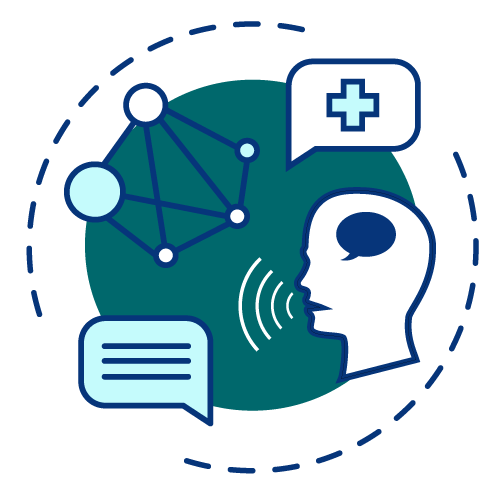The Role of a Speech Pathologist in Managing Speech Impairments
The Role of a Speech Pathologist in Managing Speech Impairments
Blog Article
Exactly How a Speech Pathologist Can Assist Improve Communication Abilities
Effective communication is a keystone of personal and expert success, yet several people deal with difficulties that impede their ability to express themselves plainly. A speech pathologist is geared up to resolve these barriers through targeted analysis and treatment methods customized to every individual's demands. By employing evidence-based restorative strategies, they not just work to enhance speech and language problems but also enhance overall communicative skills. Recognizing the diverse function of a speech pathologist discloses how their proficiency can change lives, inviting a better examination of the certain methods and results connected with their technique.
Comprehending Communication Conditions
Understanding communication conditions is essential for recognizing exactly how they affect individuals' capability to reveal themselves and engage with others. Communication conditions include a wide variety of problems that impact speech, language, and social communication, usually hindering reliable communication. These disorders can develop from different aspects, including neurological problems, developing hold-ups, physical problems, or psychological issues.
Speech problems may show up as troubles in voice, fluency, or expression manufacturing, influencing exactly how words are noticable or talked. Language problems, on the other hand, entail difficulties in understanding or using language, which can impede both verbal and non-verbal communication. Social interaction problems are defined by troubles in the practical facets of interaction, such as taking turns in discussion or understanding social cues.
The effects of interaction disorders are profound, influencing not only the person's capability to communicate thoughts and emotions yet also their social partnerships, educational chances, and total quality of life. Recognition of these problems can promote compassion and support, motivating efficient approaches for interaction and involvement. Comprehending the intricacies of communication disorders is a crucial action in the direction of advertising inclusivity and resolving the requirements of those influenced.
Duty of a Speech Pathologist
Speech pathologists regularly play a vital role in detecting and treating communication disorders, using a range of evidence-based strategies tailored to each person's requirements. These specialists work with people across the life-span, from children with speech hold-ups to grownups recouping from strokes or distressing brain injuries. Their expertise includes a variety of interaction concerns, including articulation, voice, fluency, and language problems.
In healing settings, speech pathologists utilize structured treatments designed to enhance communication skills. They may carry out strategies such as speech workouts, language games, and social interaction training to promote renovations in responsive and meaningful language capabilities. Speech Pathologist. Furthermore, they enlighten customers and their households about effective interaction techniques and adaptive methods to navigate daily interactions
Beyond direct treatment, speech pathologists team up with other medical care specialists, educators, and caretakers to make certain an extensive technique to therapy. They support for clients by providing resources and assistance, making it possible for individuals to achieve their communication goals and enhance their general lifestyle. As specialists in the area, speech pathologists are vital in promoting reliable interaction, advertising freedom, and boosting social engagement for those with interaction obstacles.
Analysis and Medical Diagnosis Process
The assessment and diagnosis process conducted by speech pathologists generally involves an extensive assessment to identify interaction problems precisely. This process begins with a comprehensive medical history, where the clinician collects significant info regarding the individual's clinical, instructional, and developing background. Understanding the context of the person's interaction problems is necessary for an exact diagnosis.
Following the medical history, speech pathologists use standardized examinations and casual assessments to evaluate numerous elements of communication, consisting of speech noise manufacturing, language understanding, meaningful language, and social communication skills. These analyses are tailored to the person's age and certain concerns, giving useful data for analysis.
Monitoring is likewise a critical part of the assessment procedure, as it allows the medical professional to see firsthand exactly how the individual interacts in natural setups. Furthermore, interviews with relative and educators can supply insight right into the person's communication obstacles across various settings.
When the analysis is total, the speech pathologist manufactures the findings to identify a medical diagnosis and recommend proper treatments. This extensive analysis process makes certain that individuals get targeted assistance tailored to their distinct interaction demands, laying the foundation for efficient healing strategies.
Healing Techniques and Techniques
Many healing techniques and techniques are utilized by speech pathologists to a fantastic read address a range of communication conditions properly. One extensively utilized method is articulation therapy, which concentrates on dealing with speech appears through repetition and visual hints. This method is especially valuable for people with speech sound disorders.
Another reliable technique is language intervention, which improves both receptive and expressive language skills. This may entail interactive tasks that advertise vocabulary development, sentence structure understanding, and conversational abilities. In addition, speech pathologists often use social skills educating to boost practical language abilities, making it possible for people to navigate social interactions more successfully.
Fluency shaping and stuttering alteration strategies are especially created to help those experiencing fluency disorders. These methods help customers establish smoother speech patterns and handle the physical and emotional parts of stuttering.
Additionally, alternate and augmentative communication (AAC) systems are used for individuals with severe interaction disabilities. These systems, which can include motions, signs, or electronic devices, give necessary support for effective interaction.
Benefits of Speech Treatment

In addition, speech treatment can help in establishing crucial listening and comprehension skills, fostering far better communication in conversations. People with cognitive-communication conditions can also profit, as therapy focuses on reinforcing memory and analytical capacities, necessary for efficient interaction.
One more crucial facet is the psychological support supplied during treatment sessions. Speech pathologists create a secure atmosphere, encouraging people to conquer anxiety and stress associated to their communication problems. site here This assistance can result in boosted self-confidence and total psychological wellness.
In addition, early intervention through speech treatment can prevent additional complications, making sure that individuals reach their full communicative possibility. Overall, the benefits of speech treatment extend beyond plain speech improvement, positively influencing various dimensions of life for those impacted by communication troubles.
Conclusion
In summary, speech pathologists play a critical role in attending to interaction problems through evaluation, medical diagnosis, and customized therapeutic interventions. By using evidence-based techniques, these professionals improve people' speech and language capacities, cultivating improved clarity, fluency, and social interaction skills. The benefits of very early intervention highlight the value of looking for aid from speech pathologists, as their knowledge can substantially boost communicative possibility, inevitably leading to greater success in both personal and professional balls.

Speech pathologists often play an essential duty in diagnosing and dealing with interaction disorders, utilizing a variety of evidence-based methods customized to each person's needs. As experts in the field, speech pathologists are necessary in fostering efficient interaction, advertising freedom, and boosting social engagement for those with interaction challenges.

Report this page